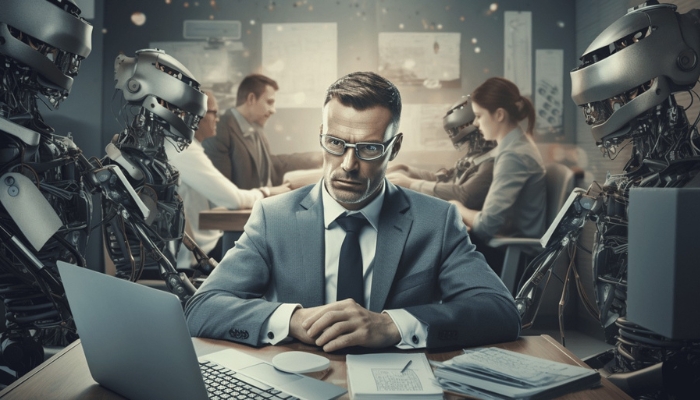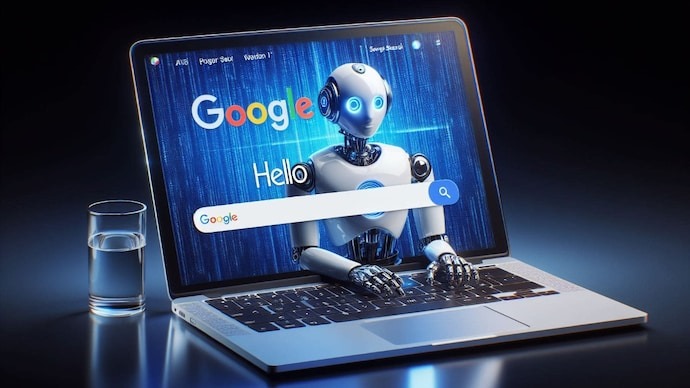
Last updated on April 8th, 2024 at 10:29 am
According to the IPPR think tank, women, younger employees, and those with lower wages are most vulnerable to the impacts of artificial intelligence
A report suggests that nearly 8 million jobs in the UK could be lost due to artificial intelligence, leading to a potential “jobs apocalypse.” The report highlights that women, younger workers, and those on lower wages are particularly at risk from automation.
The Institute for Public Policy Research (IPPR) stated that entry-level, part-time, and administrative roles are most susceptible to being replaced by AI in a “worst-case scenario” for the implementation of new technologies over the next three to five years.
The think tank cautioned that the UK is at a critical juncture as more companies adopt generative AI technologies, which can read and generate text, data, and software code, to automate everyday tasks in the workplace.
The report noted that the initial phase of AI adoption was already endangering jobs, as more companies integrate the technology. However, a subsequent phase could result in the automation of additional jobs due to rapid advancements in AI.
After examining 22,000 tasks across the economy encompassing various job types, the IPPR stated that 11% of tasks currently performed by workers were at risk. This percentage could rise to 59% in the second phase as technologies develop to handle more complex processes.
The report highlighted that routine cognitive tasks, such as database management, scheduling, and stocktaking, were already in jeopardy, potentially displacing entry-level and part-time roles in secretarial work, administration, and customer services.
Moreover, the second phase of AI adoption could impact non-routine tasks involving database creation, copywriting, and graphic design, affecting higher-earning jobs.
According to the IPPR, women would be significantly more impacted, as they are more likely to work in occupations that are most vulnerable to automation, such as secretarial and administrative roles.
In the report’s worst-case scenario for the second wave of AI, 7.9 million jobs could be displaced. The report also suggested that any potential gains for the economy from productivity enhancements would be offset by zero growth in GDP within three to five years.
In a best-case scenario for the full integration of the workforce with generative AI, no jobs would be lost. Additionally, the economy could see a 4% increase, equivalent to about £92 billion per year.
The left-of-center think tank, sounding the alarm on the impact on workers, emphasized that government action could prevent a “jobs apocalypse” and help leverage AI to enhance economic growth and improve living standards.
Carsten Jung, senior economist at IPPR, stated, “Existing generative AI has the potential to either significantly disrupt the labor market or greatly boost economic growth. In either scenario, it is poised to be a game-changer for millions of people. However, technology is not predetermined, and a jobs apocalypse is not unavoidable. Governments, employers, and unions have the opportunity to make critical design choices now to ensure we effectively manage this new technology. If they delay action, it may become too late.”





